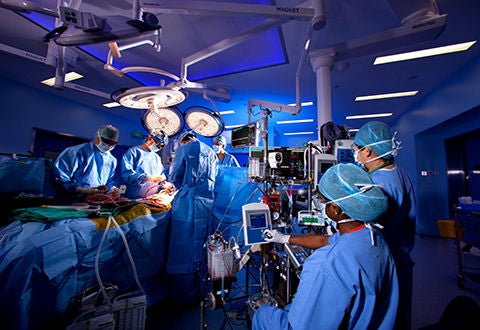
For one 19-year-old, just climbing the stairs to his grandparents’ second-storey flat had left him so breathless he would collapse on his bed and sleep for two hours.
Jason Ho was likely to die in a year or two – unless he received a new heart.
That new lease of life came on Dec 28 – Jason was among six heart transplant recipients last year.
That number was a record high for a 12-month period since 1990, when the first heart transplant operation was carried out in Singapore.
It is a result of changes to the Human Organ Transplant Act (Hota) in July 2004. Since then, doctors can remove suitable kidneys, livers, hearts and corneas for transplant from all Singaporeans and permanent residents upon their death, unless they had opted out.
Until then, the 1987 Act had allowed only kidneys to be harvested without prior consent, and only from those who died in accidents.
For Jason, the urgency was clear – the medication he had been taking for his heart since he was 15 years old started losing its effect last year.
Jason, who will turn 20 at the end of this year, is the youngest surviving heart transplant patient here.
His surgeon, Dr Lim Chong Hee, senior consultant at the National Heart Centre’s cardiothoracic surgery department, said the 2004 revision to the Hota “definitely has a positive impact”.
He said: “It makes it easier for organs to be removed. Previously, we had to beg.”
Indeed, no heart transplant was done in 2003.
But after July 2004, none has died waiting for a new heart. Currently, three patients are in the queue for a new heart.
Other organ transplants have also gone up. Last year, 56 people received a kidney from a dead donor, up from 38 in 2005, and 18 in 2003. Seven people were given a new liver last year, up from five in 2005 and two in 2003.
For Jason, a viral infection was found to have affected his heart when he was in Secondary 3. Over the next four months, he was repeatedly warded, including an 11-day stay in intensive care.
His condition stabilised after he was given nine different types of medication to be taken thrice a day.
He eventually graduated from the Institute of Technical Education.
But last year, his condition worsened while he was waiting to enlist into national service. His doctor told him he needed a transplant. After just a month’s wait, a suitable heart was found.
His mother, Madam Wong Lay Hoon, 39, a clinic assistant, said: “He was very lucky. When I was told there was a heart, I was very happy that he could get a new life, but also very worried that he would not pull through.”
He is now home – after being warded on and off for three months.
He still has to take nine different types of medication every day for life. And every month, he has to return to the hospital for a heart biopsy, where doctors will check samples of his heart tissue for signs of rejection.
It will take a year for him to recover from the transplant operation.
But Jason can now say with hope: “After finishing NS, I want to enrol in a course to be a chef.”
Source: The Straits Times © Singapore Press Holdings Limited. Permission required for reproduction.
Get the Health Buddy App
© 2025 SingHealth Group. All Rights Reserved.













 Get it on Google Play
Get it on Google Play